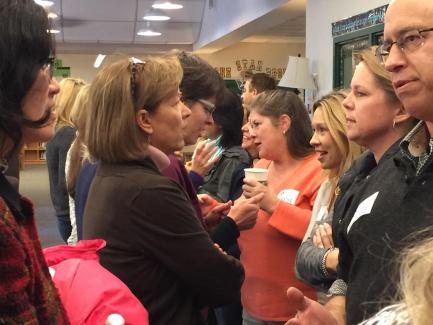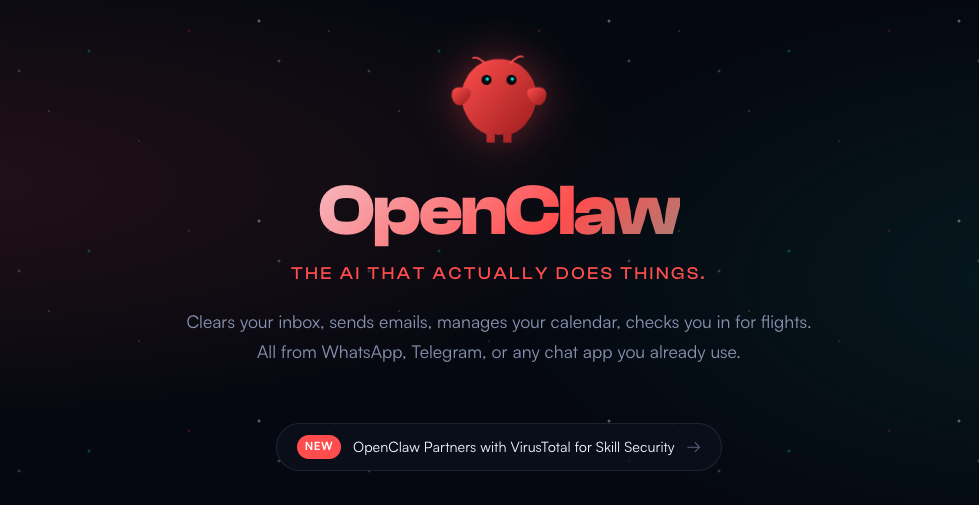10 Demands For Professional Learning – A Ransom Letter

Tools and ideas to transform education. Sign up below.
You are now subscribed
Your newsletter sign-up was successful
Dear administrators,
Listen carefully! We are a group of individuals that represent a large faction of educators. While we respect the way you have run the training methods of your organization in the past, it is time for a change. As such, we are holding your teachers’ learning hostage. Their learning is safe and unharmed at this time, however, if you would like to release their learning, you must meet our list of demands when it comes to how you provide training for adults. Failure to meet these demands will result in the wide-spread lack of professional growth and lack of improvement in pedagogical practice by your staff.

It doesn’t hurt to spend a little energy and effort promoting professional learning and getting teachers excited for it. Come up with a theme and make it feel like an exclusive “members-only” type event. While some of them may come because they “have to”, it helps start the training off with excitement and energy. One example would be to send out a video or graphic that highlights the training in a fun way. Here’s one that takes a “Point Break” theme to make learning about High Quality Assessments just a tad more exciting:

Building on the buzz and excitement from your promotion, take some time to create an atmosphere for your training event. This can be as simple as having some appropriately-themed music to adding some simple decorations around the tables. When someone walks into your room, they should be excited about being there, not dreading it. Know that many educators are entering your room with the expectation that this will just be another 6 hours of “sit n’ get”, which is why it’s important to create that exciting first impression when they walk in. Have fun activity for them that involves more than just making a name card like “tweet what your first job ever was” or “find a picture of what super hero best represents you”. This will give you as the trainer an opportunity to connect with the attendees as well as give you some material that you can use later.

Research shows that hunger affects the brain and cognitive development. While we know funding is always tight and food is the first thing to get cut, this is a list of demands. If you want your staff to learn, make sure they are not hungry. This doesn’t mean you have to provide a 5-course meal, it can be as simple as a basket of chocolate or some protein-heavy snack mix. Having protein in your diet not only creates better avenues for neurotransmitters to help with learning and retention, it increases happiness according to this study.

And this doesn’t mean have 10 minutes set aside for walking around and adding notes to those giant sticky chart papers on the walls. Take a moment and put yourself in the shoes of the attendee. Would you attend your own professional learning? “Fun” can sometimes be a negative word when it comes to learning and it shouldn’t be. Making learning fun, even for adults, will not only increase engagement in the learning, it will keep them coming back for more.

Having periods of movements or “brain breaks” throughout your training not only provide some much needed breaks from what is being input into the brain, research shows that movement facilitates brain plasticity (essentially the science of having the brain learn something new). Doing a brief improv activity or having your attendees move and stretch increases oxygen flow to the brain as well as this plasticity. A side-effect of doing a group improv activity is that it creates an environment of trust and risk-taking as well as collegiality between staff that might not normally be working along side one another.
Tools and ideas to transform education. Sign up below.

How many times have we heard that adults shouldn’t lecture children all day? Do we think that what’s best with pedagogy wouldn’t also apply to what’s best with andragogy? Who’s doing the work and talking during professional learning? If it’s more the instructor than then the attendees, you need to rethink how you are engaging your adult learners. When outlining your day for professional learning, try and employ somewhat of a “chunk n’ chew” method to the day. Break the day up into 20-30 minute segments that involving both introduction of a new skill, but also time for attendees to try it out and discuss ideas for application.

Taking into account the demands for engagement, movement, and making things more student-led, you must create opportunities for staff to collaborate on an idea or solve a problem. Providing time for collaboration in your professional learning allows opportunities for staff to discuss best practices around a topic or share strategies around a particular pedagogical problem.

Taking time for collaborative conversation at a recent training

Learning new things and skills takes a lot of cognitive ability. Having a training where all you do is show a series of new tools or tricks can be overwhelming to the brain and makes it nearly impossible to internalize all of it. As mentioned in demand #6, creating “chunk n’ chew” learning opportunities throughout the training will give staff an opportunity to try out the new skill as well as plan for application. Taking time to plan for application of the skill when it is learned, has a greater chance to translate into actual practice in the classroom.

We try to differentiate for learners in our classrooms, why not do the same for staff? Every single person comes into a training session with a different set of prior skills, knowledge, and preferred learning methods. When planning your professional learning, you need to allow opportunities for both the struggling learners and the high-flyers to be successful. This can be as simple as sharing your outline for the day ahead of time on Google docs or a website so that some can go at their own pace, while others can revisit a newly learned strategy.

Our final demand is that you provide some time for staff to reflect on what they have learned. When planning the professional learning experience for your staff, make sure there is time to reflect throughout the day. This doesn’t mean just spend the last 5 minutes reflecting on something they learned that day, but rather actual pockets of time throughout the day where they can reflect in the medium of their choosing. After all, educational reformer John Dewey once said, “We do not learn from experience…we learn from reflecting on experience.”
We feel our list of demands are not unreasonable. Please secure these demands prior to your next professional learning event or your teachers’ learning will suffer the consequences.
Sincerely,
The E.B.P.L. (Educators for Better Professional Learning)
cross posted at http://hookedoninnovation.com
Carl Hooker has been a part of a strong educational shift with technology integration since becoming an educator. As Director of Innovation & Digital Learning at Eanes ISD, he has helped spearhead the LEAP program, which put one-to-one iPads in the hands of all K-12 students in his 8000-student district. He is also the founder of “iPadpalooza”- a three-day “learning festival” held in Austin annually. He's also the author of the six-book series titled Mobile Learning Mindset, a guide for teachers, administrators, parents and others to support and embrace mobile learning in our schools. Read more at Hooked on Innovation.
Carl Hooker has spent the past 20+ years in education as a teacher and administrator focused on the thoughtful integration of technology and innovation. He consults for multiple districts across the country and is a frequent speaker at state and national events. In his free time he's an author, DJ, podcast host, Poetry Slammer, and Trivia Night MC. He's the co-founder of the social platform K12Leaders.com. Check out his latest book Ready Set FAIL! Now available for order here: https://mrhook.it/fail Read more of his blogs at Hooked on Innovation.
